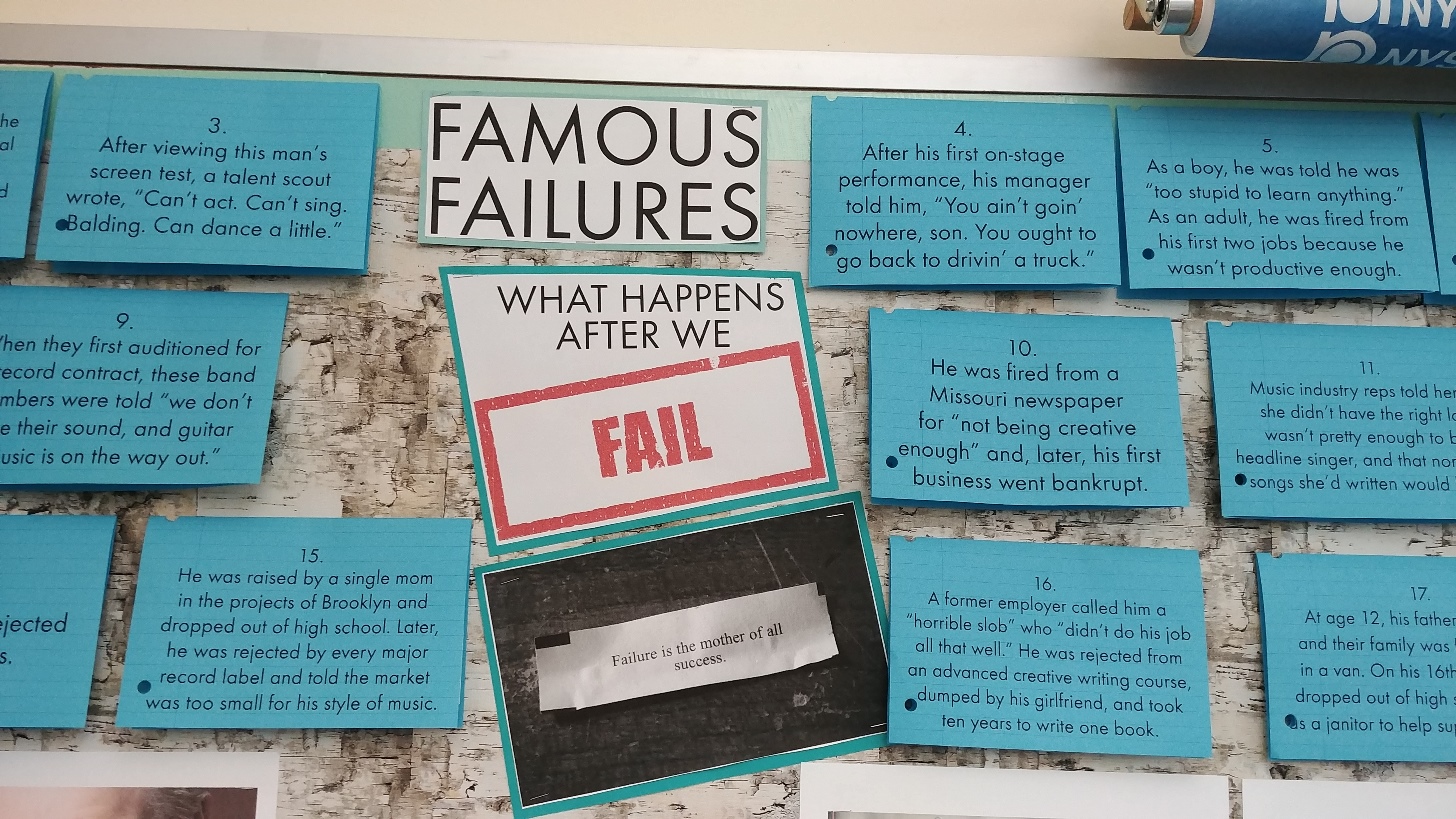 By Jane Highley
By Jane Highley
There is a huge bulletin board in my classroom with the words “Famous Failures” in the center. Around that title, there are more than a dozen examples of how historic heroes and pop-culture giants have failed. I created this bulletin board to convey a singular message: failure is valuable. The more I consider and experience failures in my own life, the more this message is confirmed: failure is necessary.
But who craves failure? Who makes a beeline to be the first at the Door of Failure? We see all around us. I have my own list: not making my goal-time for a half marathon; not earning a high score on an assessment, not getting an academic fellowship despite persistence. Some may not consider these failures. Simply finishing a half marathon requires deliberate training and preparation. Yet I tend to define failure by missing my own criteria for success. So if this were my first half marathon, finishing it alone would be cause for celebration – one that would include lots of tex-mex and Gatorade. But in my 15th half marathon I failed because I missed my time goal by almost 10 minutes! Still this failure, and many others, are good for me. Here are some reasons why failure is valuable to me:
Failure is a good teacher. I assure my students that failing a test or a quiz does not signal the end of all success. It does provide an opportunity to reassess and adjust for next time. Before I received back my graded quiz in a graduate-level history class last week, I cringed. I knew I hadn’t read the book as closely as I should have. My grade could have been worse. But since the quiz, I’ve recalibrated my reading schedule and note-taking strategies so that I can bring laser-like focus when I’m reading. Failure taught me to do this, and I am glad it happened early in the semester.
Failure forces me to zoom out and take the 30,000-foot view. When the two-hour pacer zoomed past me at mile 10 during that half marathon, I knew that my time would be disastrously disappointing. After indulging in a great pity-party for a day or two, I was reminded by TJ that I should be proud of what I did. I had run 13.1 miles on a day that delivered unexpected heat and humidity. His words echoed what I should have remembered: that God gave me this body, these legs, this heart, and this determination to train and set a goal. I am more physically fit now than I was 15 years ago. That realization fills me with unspeakable gratitude for what God has enabled me to do. Stepping back to see this event as just one dot on my life’s timeline provides the right perspective.
Finally, failure throws me to Jesus, whose love, grace, and mercy comes with no condition or qualification. He knows my weaknesses, my cravings, and my fears. He also knows how brittle my faith can be, especially when my ambition takes over. Yet, regardless of the results of my goals, His love for me remains unchanged because “for by grace you have been saved through faith. And this is not your own doing; it is the gift of God” (Ephesians 2:7-8). This verse makes me wonder if the apostle Paul wrote it for me. The cross itself is evidence of that immutable love, despite all my sins. Every failure is like a “reset” button for my faith: God reminds me that he does not change, that he loves me, and that he died on my behalf.
